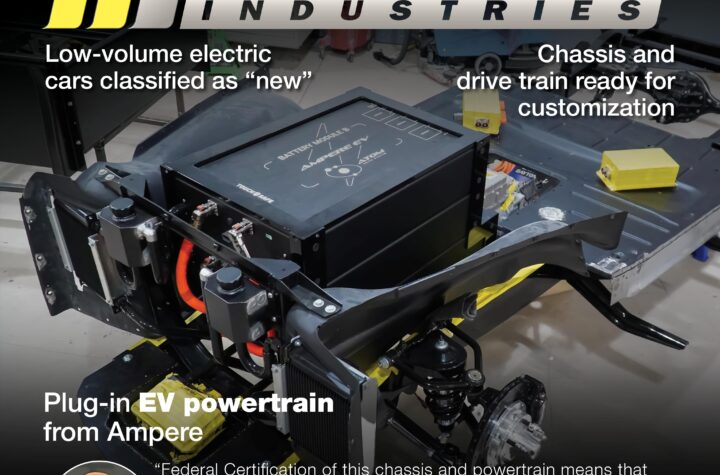
In observance of Earth Day, Allen Schaeffer, Executive Director of the Diesel Technology Forum, issued the following statement regarding the historic environmental advances that have helped create the new clean diesel technology that has dramatically reduced emissions while also expanding diesel’s efficiency and productivity in powering the world’s global economy.
“Earth Day is an opportunity to reflect on our commitments to protect and enhance our environment and natural resources, and use energy resources efficiently. There is no better example than diesel as a technology and an industry that has undergone a complete transformation in so little time that is enhancing our environment and quality of life around the globe.
“The new generation of clean diesel technology – advanced engines, ultra-low sulfur diesel fuels and new emissions control technologies – is delivering tremendous benefits today in the form of cleaner air, reduced fuel consumption and productivity gains in key sectors of the economy. It is a prime example of the major environmental accomplishments our nation has achieved since the very first Earth Day was celebrated back in 1970. Today emissions from diesel engines of all kinds now account for less than six percent of all particulate emissions in the national emissions inventory.
Clean Diesel Power is Delivering Our Clean Energy Future Today; Economic and Environmental Influence Unmatched
“While the national conversation about the energy future talks a lot about promising and potential technologies, hope for eventual acceptance and success, clean diesel power is delivering our energy future today. There is no other technology that can claim to powering 94 percent of all global trade, powering more than two-thirds of the all farm and construction equipment, the majority of emergency back-up electrical power generators and a growing number of passenger cars. There is no other technology that comes close to delivering what clean diesel technology does today in the form of advanced, low-emissions, fuel-efficient technology that drives economic growth with the record of environmental achievement.
“The diesel industry contributes more than $480 billion annually to the U.S economy, provides more than 1.25 million jobs, and supplies a substantial export-to-value ratio five times higher than the national average. Clean diesel is a proven technology that adds value; for every one-dollar invested in diesel technology, $4.51 is added elsewhere to national income in related industries that rely on diesel.
“Diesel is a technology and an industry that is largely home grown, highly successful, and provides good paying jobs that exemplifies U.S. innovation and technological advancements. The clean diesel industry also manufacturers and supplies the energy efficient, low-emissions products that are not merely aspirations of the future, but highly valued exports that are sought after today by nations in all regions of the world.
“All this has been accomplished by an industry that has worked cooperatively with policymakers and environmental stakeholders from California to Washington and around the world to dramatically reduce emissions while also increasing clean diesel’s efficiency and productivity.
“It is important to remember that it is inspired people, leaders and companies behind these tremendous accomplishments in clean diesel technology who we are proud to call our members. From design and product engineers to assembly line workers, all have had a hand in producing the cleanest diesel technology in the world today. These innovations and accomplishments span an entire industry from fuel refiners to engine and vehicle and equipment manufacturers to key suppliers and emissions control technology companies. Their accomplishments are nothing less than extraordinary:
– 98% Reduction in Emissions from New Commercial Trucks: Emissions of nitrogen oxides and particulate matter have been reduced by 98 percent in commercial diesel trucks over the past five years, now making them near-zero emissions. At the same time, the new clean diesel technology has made these new engines five to 10 percent more fuel efficient. More than 25 percent of all heavy-duty Class 8 commercial trucks on the road today are 2007 and later model year clean diesel powered.
– 90% Reduction in Emissions from New Farm and Construction Equipment: Farm tractors, harvesters, construction machines and industrial equipment are well on their way to fully implementing the new “Tier 4” clean diesel technology, which will cut emissions of particulate matter by 90 percent and half of all nitrogen oxide emissions compared to 2009 models.
– 97% Reduction in Sulfur Emissions in New Diesel Fuel: The new ultra-low sulfur diesel (ULSD) for automobiles has reduced sulfur emissions by 97 percent since its introduction for highway uses in 2006. The transition to the ULSD for all diesel fuel applications for highway vehicles was completed December 1, 2010, and the majority of fuel supplied for non-road, marine and locomotive was substantially completed on January 1, 2012.
“All around us we see first-hand the growing recognition of clean diesel technology. Whether it be in the growing success of the new generation of passenger cars and trucks, the remarkable fuel-efficiency gains of heavy-duty commercial vehicles or the productivity and efficiency gains from farm tractors and construction equipment, marine work boats or railroad locomotives. All of these sectors are embracing clean diesel technology.
Clean Diesel is a Technology of Continuous Improvement . . .
“Despite these important gains, we aren’t finished yet. The focus is largely moving now toward meeting the challenge of preserving clean air, low-emission gains while improving efficiency and lowering emissions of CO2 in commercial trucks and buses and passenger cars.
“Today the newest generation of clean diesel technology for off-road engines and equipment known as ‘Tier 4’ is making its way into our farm fields and construction and industrial sites. These new engines will revolutionize construction and agricultural productivity and efficiency. Tier 4 regulations require that manufacturers reduce the level of particulate matter and oxides of nitrogen to a level that is 50 to 96 percent lower than the existing generation of diesel engines.
“Advanced renewable diesel fuels made from a variety of feedstocks are another promising aspect of diesel technology that have the potential to further reduce CO2 emissions and reliance on imported oil.
Modernizing & Cleaning Up Older Diesel Engines: “The Diesel Emissions Reduction Act”
“Environmental and clean air progress is not limited to just new technology. This year we are continuing our bipartisan effort with our coalition of more than 400 environmental, health, industry and labor organizations to continue federal funding for the DERA program. Though the Administration’s budget provides for only $15 million in funding for the modernizing and upgrading of existing diesel engines, based on our past efforts, those investments will be leveraged by more than 2:1. And we know this program works; EPA has found that the Diesel Emissions Reduction Act (DERA) has delivered $13 in benefits for every $1 invested in reducing emissions from some of America’s 11 million older diesel engines.
“DERA has played an important role in reducing diesel emissions and this new funding will be beneficial in our clean air efforts. Congress should be commended for its positive action in restoring the DERA program. DERA serves as an example of the positive benefits that result when the environmental community, industry leaders, health agencies and government work cooperatively together.”
Diesel Technology Forum Members
AGCO Corporation, Amyris, Association of Diesel Specialists, BorgWarner Inc., BP, Caterpillar Inc., Chrysler Group LLC, Corning Incorporated, Cummins Inc., Daimler AG, Deere & Company, Delphi Automotive, Donaldson Company, Dow Automotive Systems, Ford Motor Company, General Motors Company, Honeywell International, Johnson Matthey, Mazda North American Operations, MTU, Navistar, Robert Bosch LLC, Terra Environmental Technologies, Umicore, Volkswagen of America, Inc., Volvo Group North America, Western States Petroleum Association, Yanmar America Corporation.
ABOUT THE DIESEL TECHNOLOGY FORUM
The Diesel Technology Forum is a non-profit national organization dedicated to raising awareness about the importance of diesel engines, fuel and technology. Forum members are leaders in clean diesel technology and represent the three key elements of the modern clean-diesel system: advanced engines, vehicles and equipment, cleaner diesel fuel and emissions-control systems. For more information visit www.dieselforum.org.















More Stories
Southfield Classics utilizes Ampere EV engineering to become the first manufacturer to achieve Low Volume Vehicle Manufacturer Certification
AVL ThermalLab™ brings dynamic road VTMS conditions to the laboratory
Sika – where battery storage technology for EVs, wind and solar meet